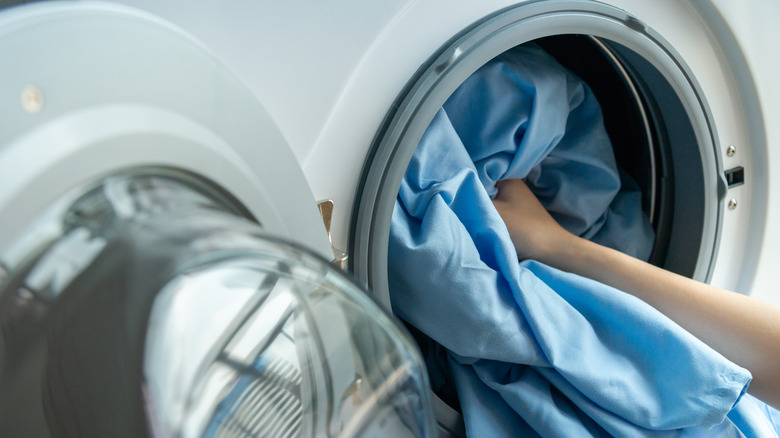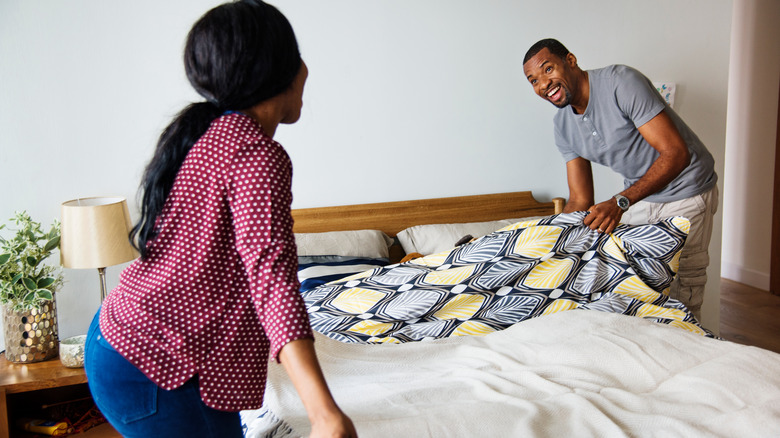How Often Should You Really Be Washing Your Sheets?
Doing the laundry is one of those chores we know we have to do, but more than a few of us try to put off as long as possible. (Who among us hasn't done a sniff test to see if that T-shirt or pair of PJs can be worn another day?) Even when we do bring ourselves to wash a load or two, we often opt not to add the sheets and pillowcases to the mix. After all, it's such a hassle to strip the bed and put on fresh linens. Then the bedding takes up so much room in the washer and dryer, and afterward, there's that battle to fold the fitted sheets neatly.
As nice as it feels to slip between clean sheets at the end of a long day, many of us are a little lazy about putting on that fresh bedding regularly. Mattress Advisor surveyed more than 1,000 people in 2017 about their linen-washing habits, and the results might surprise you.
On average, Americans go 24.4 days before changing their sheets, and 24.6 days before putting on fresh pillowcases. That's more than three weeks of sleeping on the same bedding night after night. Apparently, this time span doesn't bother us too much; the people surveyed said that they wouldn't be grossed out by unwashed sheets until after the 35-day mark. In fact, though, our bed linens really need to be washed more often, for both comfort's sake and the sake of our health.
Weekly washings are best for bed sheets
The National Sleep Foundation and other experts recommend that people change their bedding once a week, or at most every two weeks for people who don't sleep on their mattress every night. Even if they don't look it, sheets and pillowcases can quickly become contaminated with the sweat, skin flakes, and body fluids we shed on the regular, which can become breeding grounds for fungi and bacteria (via Business Insider). That's not even mentioning the dust, lint, pet dander, dust mites, and other microscopic debris that collect on beds just from regular use. This can pose a health risk for anyone, but especially individuals with allergies and asthma.
To keep your bed — and you — healthy, get in the habit of washing your sheets and pillowcases weekly. In most cases, a cold-water wash is best, which saves energy and reduces wear on the fabric, reports CNN. If you're changing the sheets of someone who has been sick, washing in warm water with a laundry sanitizer will help disinfect the linens. And if a family member has allergies or asthma, wash their bedding in hot water, which kills the dust mites that can trigger sneezing and wheezing.
Consider buying three sets of bedding if you haven't already. Then you can rotate the sheets with a fresh set on the bed, the used sheets in the laundry, and one clean set in the linen closet, ready to go.

